Try Scuba Diving
Explore the depths of the deep blue sea and discover the diverse marine life that awaits beneath the surface. Scuba diving offers a unique opportunity to explore a world unlike any other, where colorful coral reefs, majestic sea creatures, and hidden treasures abound.
But what lies beyond the shimmering waters is not just a visual feast; it’s a chance to take in an adventure that promises unforgettable experiences and newfound perspectives.
Key Points
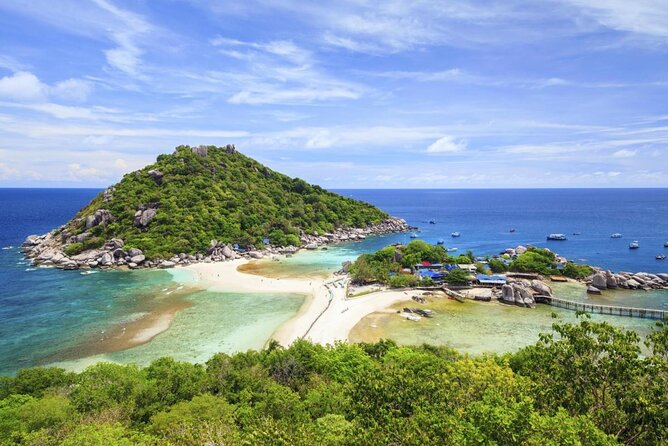
- Experience the thrill of exploring underwater worlds and feel rejuvenated and connected.
- Learn safety tips and precautions to master basic techniques and avoid common mistakes.
- Choose and maintain gear for safety and comfort, essential for a peaceful and tranquil dive.
- Discover top scuba diving destinations like the Great Barrier Reef and Truk Lagoon for an unforgettable experience.
Here's some more nearby activities we've reviewed
Benefits of Scuba Diving
Set out on a journey beneath the waves and discover the myriad benefits of scuba diving for both mind and body. Scuba diving not only offers the thrill of exploring underwater worlds but also provides a platform for community building. Divers often form strong bonds through shared experiences and a mutual love for the ocean.
Beyond the social aspect, diving promotes mental relaxation as the serene underwater environment calms the mind and reduces stress levels. The rhythmic sound of breathing underwater coupled with the mesmerizing marine life creates a sense of peace and tranquility.
Whether you’re seeking a new adventure or a way to unwind, scuba diving encompasses both physical and mental benefits that leave divers feeling rejuvenated and connected to the underwater world.
Safety Tips for Beginners
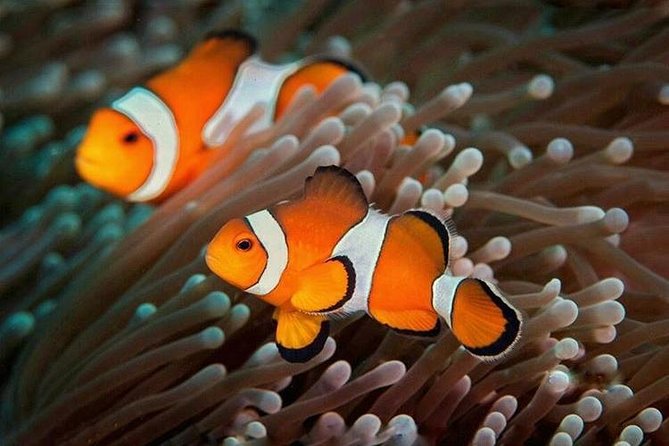
Discovering the world beneath the waves can be an exhilarating experience, but ensuring safety as a beginner scuba diver is paramount for a successful underwater adventure. To stay safe, beginners should focus on mastering basic techniques such as equalizing ear pressure, breathing slowly and deeply, and maintaining buoyancy control.
Common mistakes to avoid include holding the breath while ascending, diving too deep without proper training, and neglecting equipment checks. Remembering to always dive with a buddy, communicate effectively underwater, and adhere to the guidance of experienced instructors are crucial for a safe and enjoyable scuba diving experience.
Choosing the Right Gear
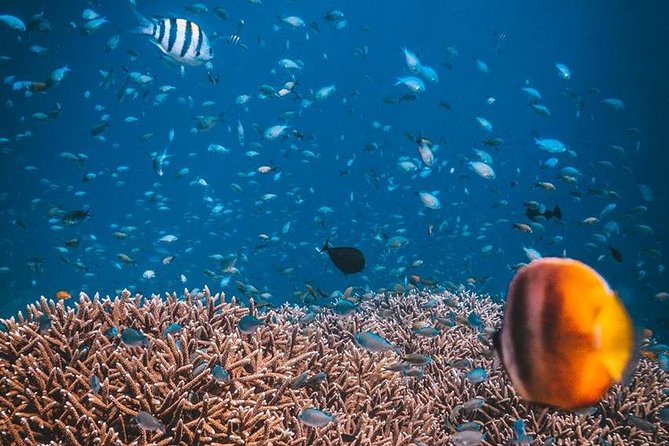
When gearing up for a scuba diving adventure, it is essential to carefully select the right equipment to ensure safety and comfort underwater. Proper gear selection is crucial for an enjoyable and secure diving experience. From wetsuits to masks, each piece of equipment plays a vital role in your underwater journey. Plus, maintaining your scuba gear is key to prolonging its lifespan and ensuring it functions correctly. Regularly checking for wear and tear, rinsing gear after each dive, and storing it properly are essential steps in equipment maintenance.
| Gear Selection | Equipment Maintenance |
|---|---|
| Wetsuit | Rinse after each dive |
| Mask | Check for wear and tear |
| Regulator | Proper storage |
Top Scuba Diving Destinations
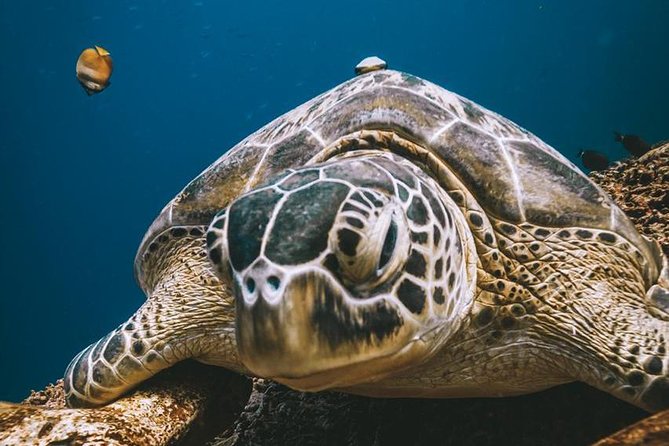
Among the myriad breathtaking underwater paradises around the globe, some of the top scuba diving destinations offer unparalleled opportunities for divers to explore vibrant marine ecosystems.
Diving excursions in the Great Barrier Reef in Australia provide a kaleidoscope of colors with coral gardens and diverse marine life.
The crystal-clear waters of the Maldives offer a chance for unforgettable underwater exploration amidst manta rays and whale sharks.
The cenotes in Mexico present a unique experience with underwater caves and caverns waiting to be discovered.
Thailand’s Similan Islands boast impressive underwater rock formations and a rich biodiversity.
For wreck diving enthusiasts, Truk Lagoon in Micronesia offers a haunting yet fascinating dive experience among WWII shipwrecks.
These destinations promise unforgettable adventures for all levels of divers.
Health Benefits of Diving
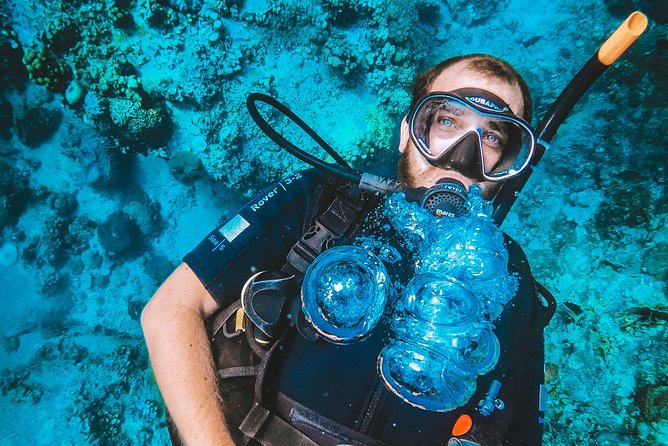
Enjoy the invigorating world of scuba diving and uncover the myriad health benefits that await beneath the waves. Diving not only allows you to explore the underwater world but also provides significant health advantages:
-
Physical Exercise: Engaging in scuba diving is a fantastic way to stay active and improve your overall fitness levels.
-
Mental Wellness: The calming effect of being underwater and the focus required during dives can enhance mental well-being.
-
Stress Reduction: Diving helps reduce stress levels, promoting relaxation and a sense of peace.
-
Improved Breathing: The controlled breathing techniques practiced while diving can lead to better respiratory health and increased lung capacity.
Experience the dual benefits of physical exercise and mental rejuvenation through the exciting world of scuba diving.
Conservation Efforts in Diving
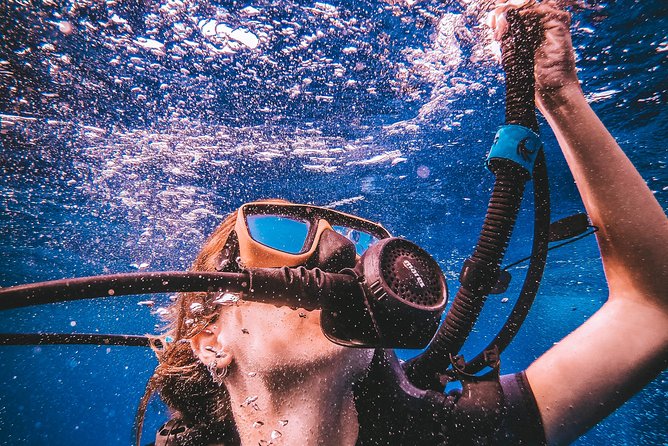
Explore how scuba diving enthusiasts actively contribute to marine conservation efforts through dedicated initiatives and sustainable practices. Divers play a crucial role in protecting underwater ecosystems by participating in reef cleanups, monitoring marine life populations, and advocating for sustainable tourism practices. Through these efforts, divers help preserve delicate habitats and promote the importance of marine conservation.
| Conservation Initiatives | Description | Impact |
|---|---|---|
| Reef Cleanups | Organized dives to remove marine debris from coral reefs | Preserves coral health and protects marine life |
| Marine Life Monitoring | Participation in citizen science projects to track species populations | Provides valuable data for conservation efforts |
| Sustainable Tourism Advocacy | Promoting responsible diving practices to minimize environmental impact | Supports long-term sustainability of dive sites |
Here's a few more nearby tours and experiences we have reviewed.
Common questions
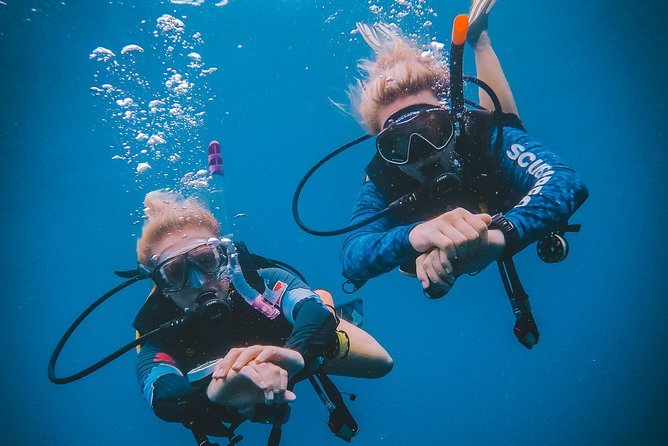
How Long Does a Typical Scuba Diving Session Last for Beginners?
For beginners, a typical scuba diving session usually lasts around 30 to 45 minutes. They will receive equipment rental and safety precautions before learning essential breathing techniques and underwater communication skills to ensure a safe and enjoyable experience.
Are There Any Age Restrictions for Trying Scuba Diving?
Age restrictions for scuba diving vary, but typically participants must be at least 10-12 years old. Equipment requirements include a mask, fins, and a wetsuit. Safety precautions are crucial, with proper training and supervision recommended for all divers.
Is Previous Swimming Experience Required to Try Scuba Diving?
Safety measures and breathing techniques are vital for scuba diving. While previous swimming experience is beneficial, it is not always required. Beginners can learn basic skills under professional guidance to enjoy this exciting underwater adventure.
Can I Wear Contact Lenses or Glasses While Scuba Diving?
Wearing contact lenses while scuba diving is generally not recommended due to potential risks. Prescription goggles are a safer option to ensure clear vision underwater. It’s crucial to prioritize safety and comfort for an enjoyable diving experience.
Are There Any Specific Dietary Restrictions or Recommendations Before a Scuba Diving Experience?
Before a scuba diving experience, it’s vital to focus on pre-dive nutrition and hydration tips. Consuming light, balanced meals and staying well-hydrated can enhance energy levels and ensure a comfortable and safe dive.
Here's more of our most recent tour reviews happening neaby
- Koh Tao Viewpoint and Snorkeling Tour
- Koh Tao Cliff Jumping Snorkeling Experience
- Thailand Data Esim 500MB per Day to 20GB – 30Days
- Private Photo Session With a Local Photographer in Ko Tao
- Koh Tao Snorkeling Tour to Hidden Bays and Koh Nang Yuan
- Basic Diver ( One Day Experience)
- Snorkel Trip to Koh Nangyuan and Bays of Koh Tao By The Oxygen
- Extend Your Diving Limits in 2 Days – PADI Advanced Diver Course
- Full Day Snorkeling Adventure Around Koh Tao
- Become Certified Diver in 3 Days – PADI Open Water Diver Course on Koh Tao
- 3 Days PADI Open Water Scuba Diving in Koh Tao
Last Words
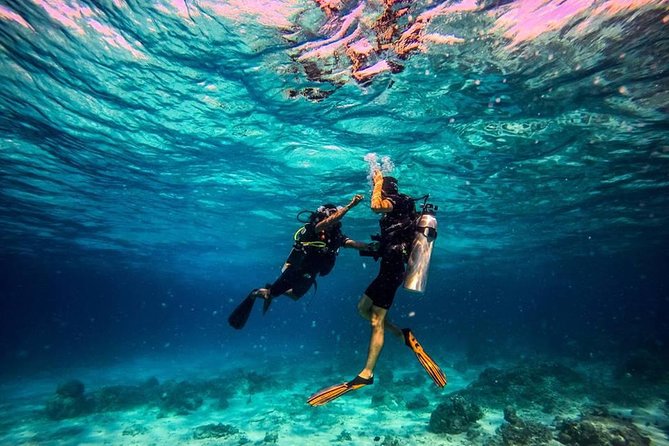
Experience the thrill of scuba diving with Dpm Diving for an unforgettable adventure tailored to you and your group.
With top-notch safety measures, stunning destinations, and health benefits to boot, scuba diving offers a one-of-a-kind experience like no other.
Dive into the wonders of the underwater world, make memories that will last a lifetime, and contribute to conservation efforts while you’re at it.
Don’t wait any longer – try scuba diving today!